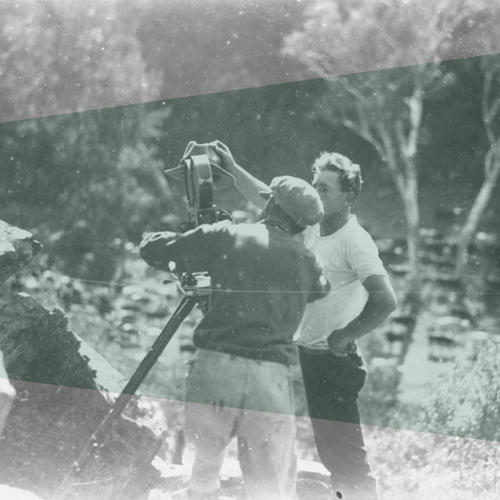Research Focus: Cinematic Image and Historical Experience
Research Focus: Cinematic Image and Historical Experience
Our activities related to our research foci Genre and Affect as well as Poetics and Politics resulted in a reassessment of our hypotheses regarding historicity. This concerns the communities of taste as a connection between genre and history, and between politics and history. Furthermore, this means that we have to overcome a reduction of historicity of cinematic images to a mere context that would entail some sort of “knowledge” on “conventions” and representations of historical themes.
This led to the question of how to conceptually and methodologically grasp a specific historical dimension of experience as effect and condition of the poiesis of viewing films within the aesthetic mode of film, while critically drawing on the ideas of hermeneutics. Our interest not only lies in what can be defined as historical in cinematic images (as products) and what may relate to a (political, social, etc.) history. Primarily, we wanted to investigate how cinematic images shape an understanding of historicity and even create historical experience as an aesthetic experience in the first place.
At the core of our work with film and media scholars Thomas Elsaesser, Erica Carter, Robert Burgoyne, Julian Hanich, Deniz Göktürk, Erhard Schüttpelz, Winfried Pauleit, and Heide Schlüpmann was the question of how to grasp the thinking of cinematic images and the poiesis of viewing films as a constructed space of historical experience. We examined and applied this issue discussing presentations by our Artists-in-Residence, Ayse Polat and Isabel Mundry, and by artistic researchers like Stanislas Meda Bemile.
We proceeded from the assumption that the poetics of cinematic images can be understood as manifold world versions, with each one delineating, varying, or continuing another. Synchronously, these poetological world versions of cinematic images may relate to one another in a multifaceted manner of competition and dependency. Diachronically, one can reconstruct history as a process in which various aesthetic commonalities are permanently reconstructed as ever-changing conditions of understanding and judging, feeling and imagining in specific political, cultural, and technological constellations.
In order to examine these hypotheses in more detail, we wanted to link our historical-theoretical reflections to earlier research foci. Concerning our focus Metaphor - Film Images, Cinematic Thinking, and Cognition, we found that cinematic processes of metaphorization are closely related to models of transformation and description in historical-theoretical thinking (e.g. in Reinhart Koselleck, Hayden White, and Paul Ricoeur).
Furthermore, this focus was similar to our approach to Genre and Affect insofar as we wanted to reconstruct the differentiations of the poiesis of viewing films as an unfolding of various modalities of affect. In doing so, we followed the ramifications of different cinematic genres, their transformations (Fredric Jameson), affinities (Siegfried Kracauer), and dialogical interactions (Michail Bachtin) with the genres of other art and entertainment forms.
Referring to Hannah Arendt and Michel de Certeau, and organizing a lecture series on 1968, we established additional links to our research focus Poetics and Politics in that we examined the relation between a poetic conception of the world and processes of cultural and political commonality. We specified this relation historically through analyzing the emergence of heterogeneous communities of taste and their tactics of appropriation and consumption – a topic we wish to work on in more detail during the upcoming semesters.
As we discussed these approaches in colloquia and exemplified them on different subjects in our workshops, it became apparent that the ‘historicity of cinematic images’ is entirely different from the idea of applying implicit cultural or historical knowledge to films. On the contrary, the poetic dimension of experiencing audiovisual movement images affects the possibility of understanding history. It modulates the conditions of understanding.
The results of our research focus have been published in the following volumes of our Cinepoetics book series:
